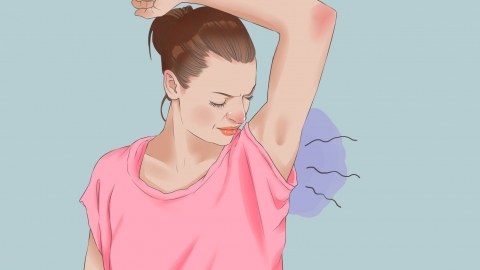What department should I visit at the hospital for body odor?
Under normal circumstances, patients with bromhidrosis (body odor) can choose the appropriate department according to their own needs when visiting a hospital. Common departments include dermatology, plastic surgery, general surgery, medical cosmetology, and endocrinology. Detailed analysis is as follows:
1. Dermatology
Dermatology primarily focuses on diagnosing and treating diseases related to the skin and its appendages. Bromhidrosis occurs when abnormal secretion from the axillary apocrine glands leads to odor production after bacterial breakdown of sweat, which falls under the category of functional abnormalities of skin appendages. Doctors in this department will assess the condition by observing the condition of the underarm skin and asking about the timing and duration of the odor.
2. Plastic Surgery
Plastic surgery centers on tissue reconstruction and functional improvement. For bromhidrosis, the treatment may involve surgical removal of the apocrine glands. The department will develop a surgical plan based on the patient's axillary anatomical structure.

3. General Surgery
The scope of general surgery includes diseases of the abdomen, neck, breast, and other areas. Some general surgery departments also provide surgical treatment for bromhidrosis. Diagnosis involves physical examination to determine the severity of the odor and the activity level of the apocrine glands. Treatment typically involves traditional surgical removal of the apocrine glands and is suitable for patients with severe odor and no significant contraindications to surgery.
4. Medical Cosmetology
Medical cosmetology focuses on improving appearance and related issues through minimally invasive and cosmetic techniques. Treatments for bromhidrosis often include microwave therapy and radiofrequency therapy. The diagnosis involves a comprehensive evaluation based on the patient's expectations for treatment outcomes and scarring. The treatment process emphasizes minimizing damage to surrounding healthy tissues while effectively eliminating odor and maintaining underarm aesthetics.
5. Endocrinology
Endocrinology mainly deals with regulating the body's endocrine system functions. If bromhidrosis is associated with endocrine disorders, patients may visit this department. Diagnosis involves testing hormone levels to determine if there is an endocrine abnormality. Treatment primarily focuses on regulating endocrine function to help alleviate excessive apocrine gland secretion and reduce odor.
In addition, patients with bromhidrosis can consult hospital guides before visiting to choose the appropriate department based on the hospital's departmental setup and their own condition. During the visit, patients should truthfully inform the doctor about the timing, frequency of the odor, and any family history, which will help the doctor make an accurate diagnosis.





